- “Even here in Ireland, to publicly espouse Christian ideals can lead to ridicule, insult and aggression” – Bishop Router
- Archbishop Eamon Martin to celebrate Red Wednesday liturgy on 27 November in Saint Patrick’s Cathedral, Armagh
Today at Mass in Saint Patrick’s Cathedral, Armagh, Bishop Michael Router launched the ‘Week of Witness’ – an invitation to Christians across the island of Ireland to stand in solidarity with, and bear witness to the heroic example of, our persecuted brothers and sisters in faith across the world.
The Week of Witness is organised and promoted by the Catholic charity Aid to the Church in Need and is held every year from 25 November to 1 December. This special week involves important talks and exhibitions throughout the island of Ireland on the theme of Christian persecution. During the ‘Week of Witness’, ACN Ireland will hold the Red Wednesday Prayer Vigil with the prayerful assistance of dioceses and parishes throughout the country. Red Wednesday is an opportunity for the faithful to gather as a community to pray not just for persecuted Christians – but also for the persecutors of Christians.
In his homily delivered at Mass today (see full text below), Bishop Router referred to the beautiful new statue of the martyr Saint Oliver Plunkett that was unveiled in the Cathedral by Archbishop Eamon Martin on 9 July last. Bishop Router said,
“As you stand below the statue and look up; you look up into his eyes. Those eyes capture the pain of the moment, but they also capture the strength of character that Oliver had and the hope that lies at the heart of our Christian faith. This hope and conviction has inspired so many millions of Christians to give their life rather than to give up their faith in Jesus as their saviour and as the saviour of an ungrateful world. The inscription at the base of Saint Oliver’s statue reads, ‘All holy martyrs of yesterday, today and tomorrow, pray for us’. It recognises that the persecution and martyrdom of Christians is not just an historical footnote but something that is very real today and will continue. Christians are the most persecuted religious grouping in the world at present. The Pew Research Centre in London reported in the June 2018 that in 143 of the 195 countries around the world there were incidents of persecution and harassment against Christians.”
Bishop Router also addressed the question as to why persecution against Christians still exists, suggesting that there may be many different political and social reasons,
“in many places it is because the Christian Churches challenge the systems of injustice, oppression and brute force that exist. True Christianity has always stood for the rights of everyone particularly the basic rights that come before all else: the right to life, the right to food and shelter, the right to education. Often in defending these rights Christians have had to stand against the powerful, the wealthy and the tyrannical and have suffered as a result”.
Bishop Router referred to some of the statistics on the persecution and martyrdom of Christians since 2017 included in the Aid to the Church in Need report Persecuted and Forgotten. In that period, for example, 4,305 Christians have been killed for their faith, 1,847 churches and other Christian places of worship were attacked, and 3,150 Christians were detained without trial, arrested, sentenced or imprisoned. The report also states that between 2017 and 2019 Christians were the victims of 80% of all persecution worldwide.
Bishop Router warned that as we listen to statistics and stories from around the world we tend to think that the persecution of Christians is a distant problem that happens elsewhere. He reminded the congregation that,
“even here in Ireland, to publicly espouse Christian ideals can lead to ridicule, insult and aggression. So today, and every day, we are called to be witnesses and to take on a kind of martyrdom in standing up for what we believe in and what we know is right and just. On this feast of Christ the King, the crucified King, we are reminded that Jesus’ suffering and death brought about a transformation in the world … Through the blood of the martyrs, and the pain of the persecuted, a light is being shone even in the darkest places. So, stand and let your light shine and commend your spirit, your future, your life, into the hands of God”.
ENDS
Homily of Bishop Michael Router for the launch of ‘Week of Witness’ 2019
Introduction
We celebrate the feast of Christ the King this weekend, remembering that the life of Jesus our saviour and king ended in the pain and humility of the Cross. Since His sacrifice on the Cross so many others have suffered or laid down their lives for His sake and in order to bring the transformation that He promised into the world.
Such persecution and suffering is still experienced by many Catholics and by Christian’s around the world. Today we pray for those who are suffering for their faith in this ‘Week of Witness’ – a week to remember the martyrs of yesterday and today. As we commemorate them we pray for a little of their strength and conviction and for the determination to stand up for our faith despite the suffering it will inevitably bring.
Homily
On the 9 July this year Archbishop Eamon Martin unveiled the beautiful new statue of Saint Oliver Plunkett that stands here to the left of the sanctuary. The statue created by the artist Donie McManus is a haunting representation of Saint Oliver in the moments before he was executed, essentially for his Catholic beliefs and his position as Primate of the Irish Church. As you stand below the statue and look up; you look up into his eyes. Those eyes capture the pain of the moment, but they also capture the strength of character that Oliver had and the hope that lies at the heart of our Christian faith. This hope and conviction has inspired so many millions of Christians to give their life rather than to give up their faith in Jesus as their saviour and as the saviour of an ungrateful world.
The inscription at the base of Saint Oliver’s statue reads ‘All holy martyrs of yesterday, today and tomorrow, pray for us’. It recognises that the persecution and martyrdom of Christians is not just an historical footnote but something that is very real today and will, continue into the future. Christians are the most persecuted religious grouping in the world at present. The Pew Research Centre in London reported in the June 2018 that in 143 of the 195 countries around the world there were incidents of persecution and harassment against Christians.
Why is it that Christians still suffer so much intimidation and discrimination? There are probably many different reasons for this including political and social reasons but no doubt in many places it is because the Christian Churches challenge the systems of injustice, oppression and brute force that exist. True Christianity has always stood for the rights of everyone particularly the basic rights that come before all else; the right to life, the right to food and shelter, the right to education. Often in defending these rights Christians have had to stand against the powerful, the wealthy and the tyrannical and have suffered as a result.
There are many places around the world were the treatment of Christians has gone beyond even harassment and intimidation. Aid to the Church in Need, in its recent report entitled Persecuted and Forgotten outlines in detail the facts and statistics surrounding the persecution and martyrdom of Christians since 2017. In that period 4,305 Christians have been killed for their faith, 1,847 churches and other Christian places of worship were attacked, and 3,150 Christians were detained without trial, arrested, sentenced or imprisoned. Remarkably the report also states that in that time Christians were the victims of 80% of all persecution worldwide.
Over this past year we have heard about the awful bombing on Easter Sunday of Catholic Churches and Christian places of worship in Sri Lanka. 259 people were killed, and hundreds injured. In January two bombs went off inside and outside the Cathedral of Our Lady of Mount Carmel in the Philippines killing 22 people and between February and April more than 300 were killed in a series of attacks on Christians in the Northern Nigerian states of Kaduna and Adamawa.
North Korea is the number one country on the 2018 World Watch List, the ‘Open Doors’ annual ranking of the 50 countries where Christians are most persecuted for their faith. It is without doubt one of the most dangerous places in the world to be a follower of Jesus. It is estimated that there are between 200,000 and 400,000 secret Christians in that grim communist state, and that nearly 70,000 of them are being held in horrific labour camps because of their faith.
Hea Woo was one such Christian who knew what it was like to spend time in one of those prison camps. In her account of life in the camp she said that the authorities and the guards were merciless. They constantly kicked her and beat her with sticks. Many of the inmates died on a daily basis, their bodies burned, and the ashes scattered on the paths around the camp. Yet even in the horror of her incarceration she felt that God was at work and that He helped her to survive but, not only that, He inspired her to evangelise the other prisoners. She set up a small group of five others who met together in a toilet; the only place that was out of view of the guards. There they held a short service exchanging bible verses and quietly singing hymns such as Amazing Grace. These moments of prayer and togetherness helped Hea Woo to survive and thankfully she was eventually released before escaping to South Korea.
As you listen to these statistics and stories you may be inclined to think that such treatment of Christians is what you would expect to find in countries like North Korea, Nigeria, Sri Lanka, Afghanistan, or Pakistan. We do tend, however, to overlook persecution closer to home. It may not be on a scale found in those countries but in many western countries – even here in Ireland – to publicly espouse Christian ideals can lead to ridicule, insult and aggression. So today, and everyday, we are all called to be witnesses and to take on a kind of martyrdom in standing up for what we believe in and what we know is right and just. We need the strength and courage of Saint Oliver Plunkett and the conviction and hope of Hae Woo to live the Christian faith in an increasingly hostile world.
On this feast of Christ the King, the crucified King, we are reminded that Jesus’ suffering and death brought about a transformation in the world. Despite the ongoing violence, persecution and oppression, we must believe that through Christ the victory is won and, ultimately, we have nothing to fear. Through the blood of the martyrs, and the pain of the persecuted, a light is being shone even in the darkest places. So, stand and let your light shine and commend your spirit, your future, your life, into the hands of God.
Amen.



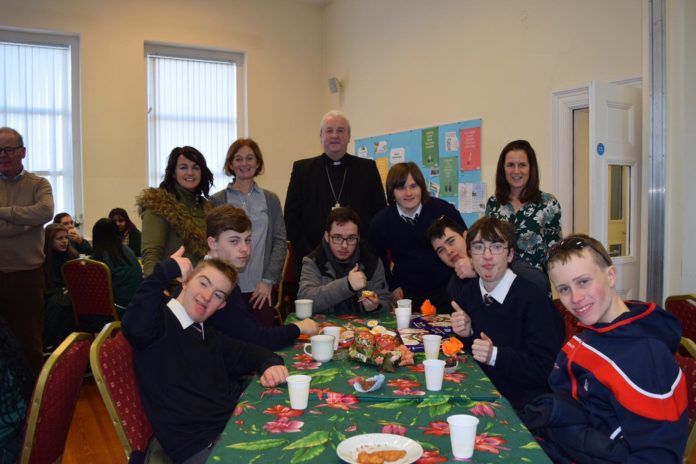
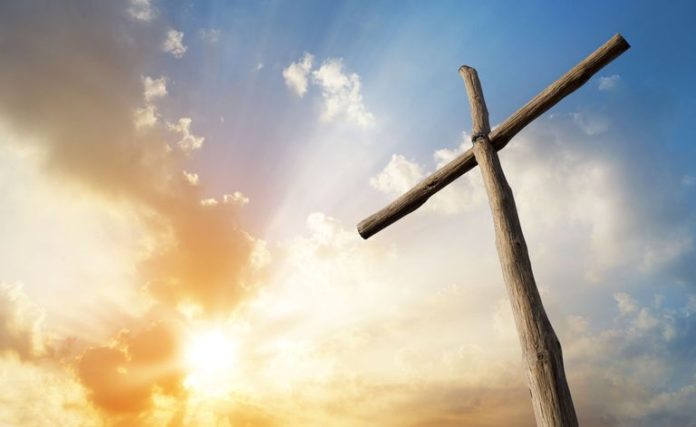



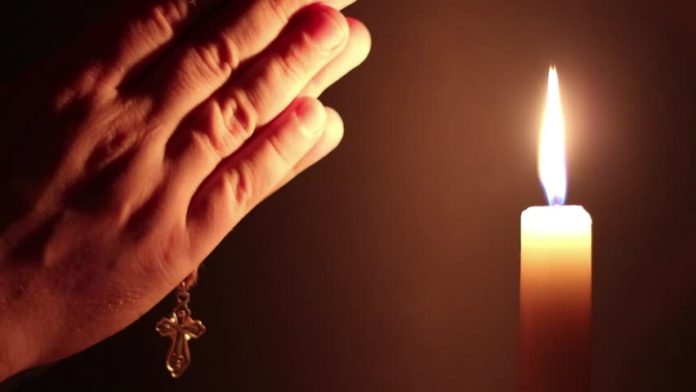

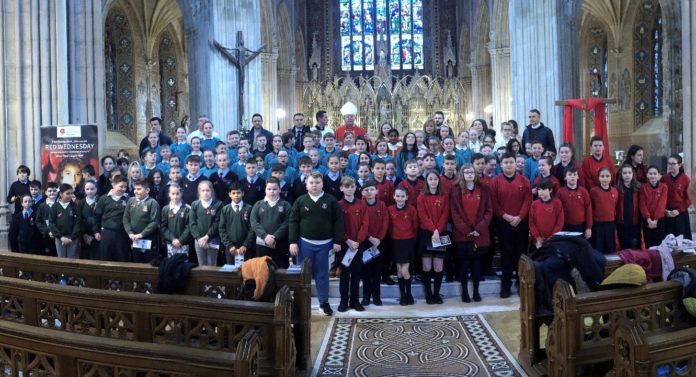

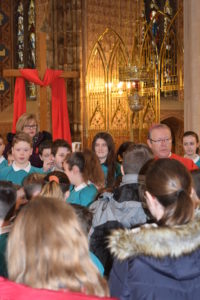
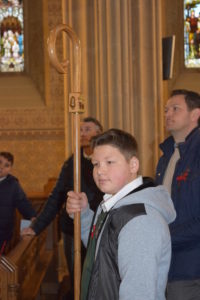
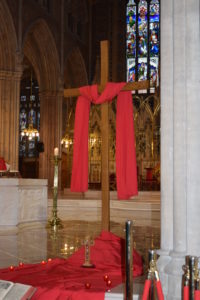
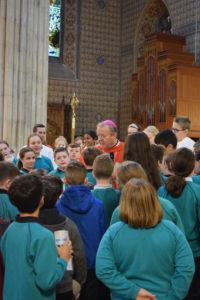
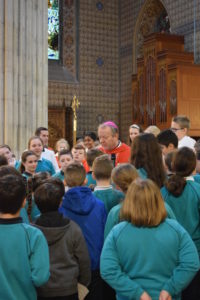
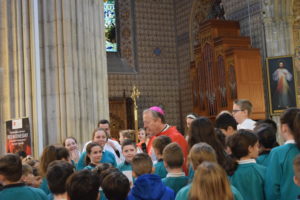
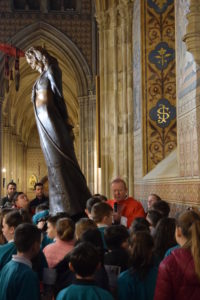
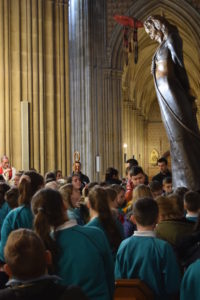
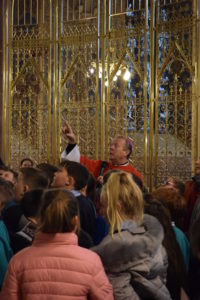
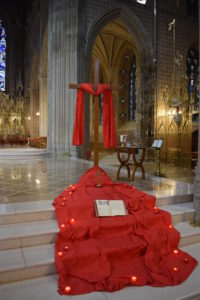
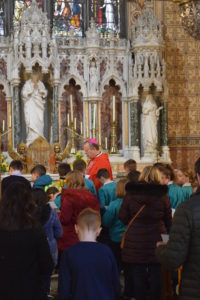
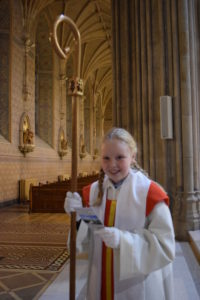
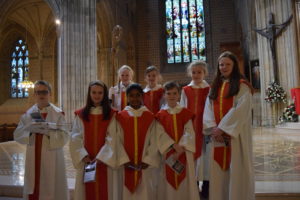
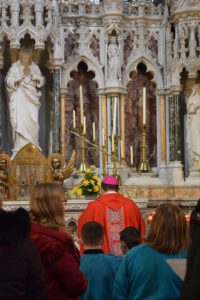
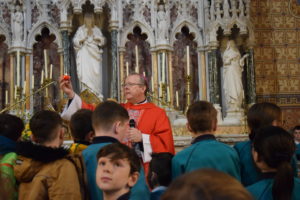
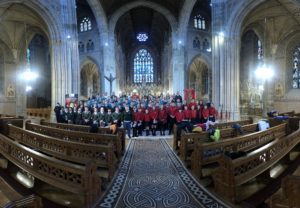
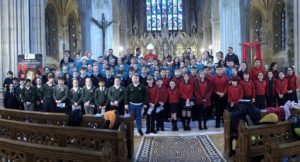

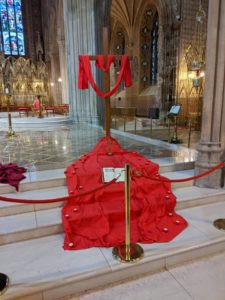
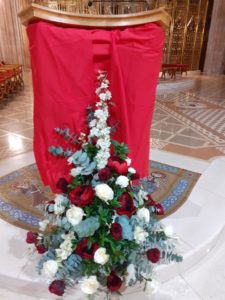
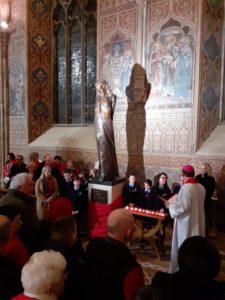
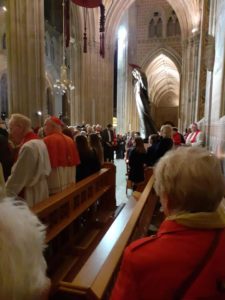
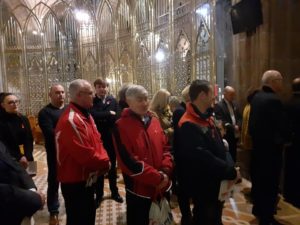
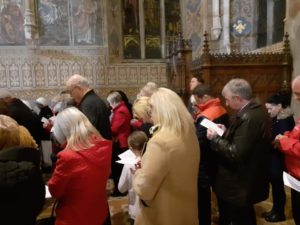
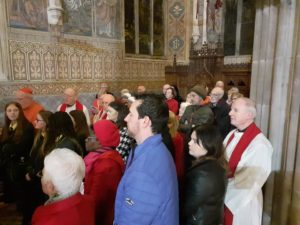
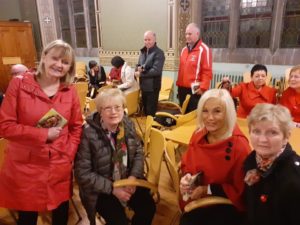
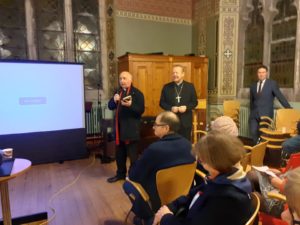
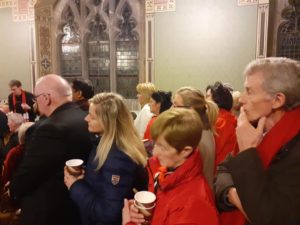
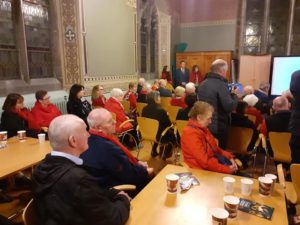
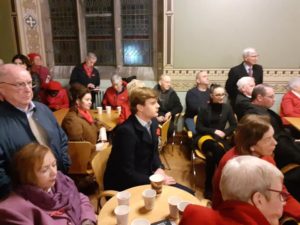
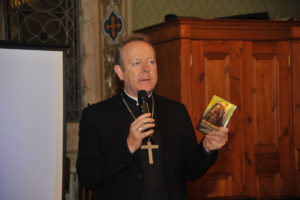
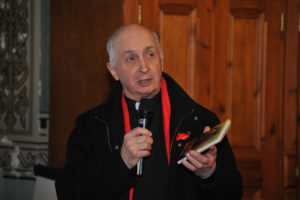

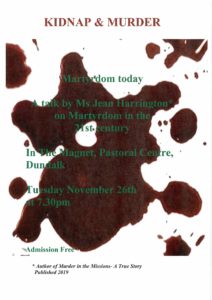
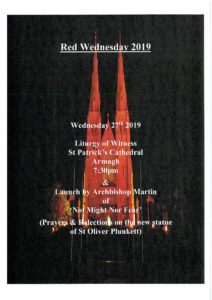
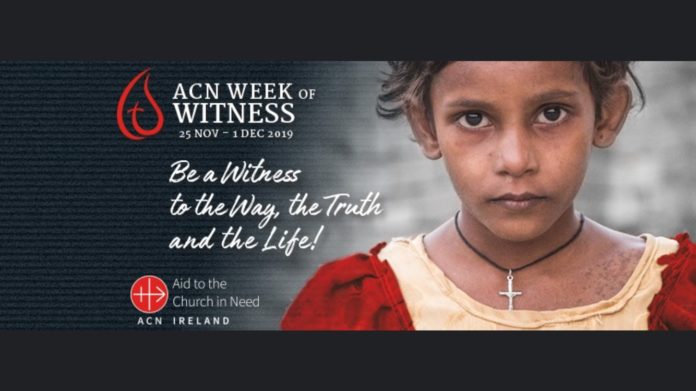
You must be logged in to post a comment.